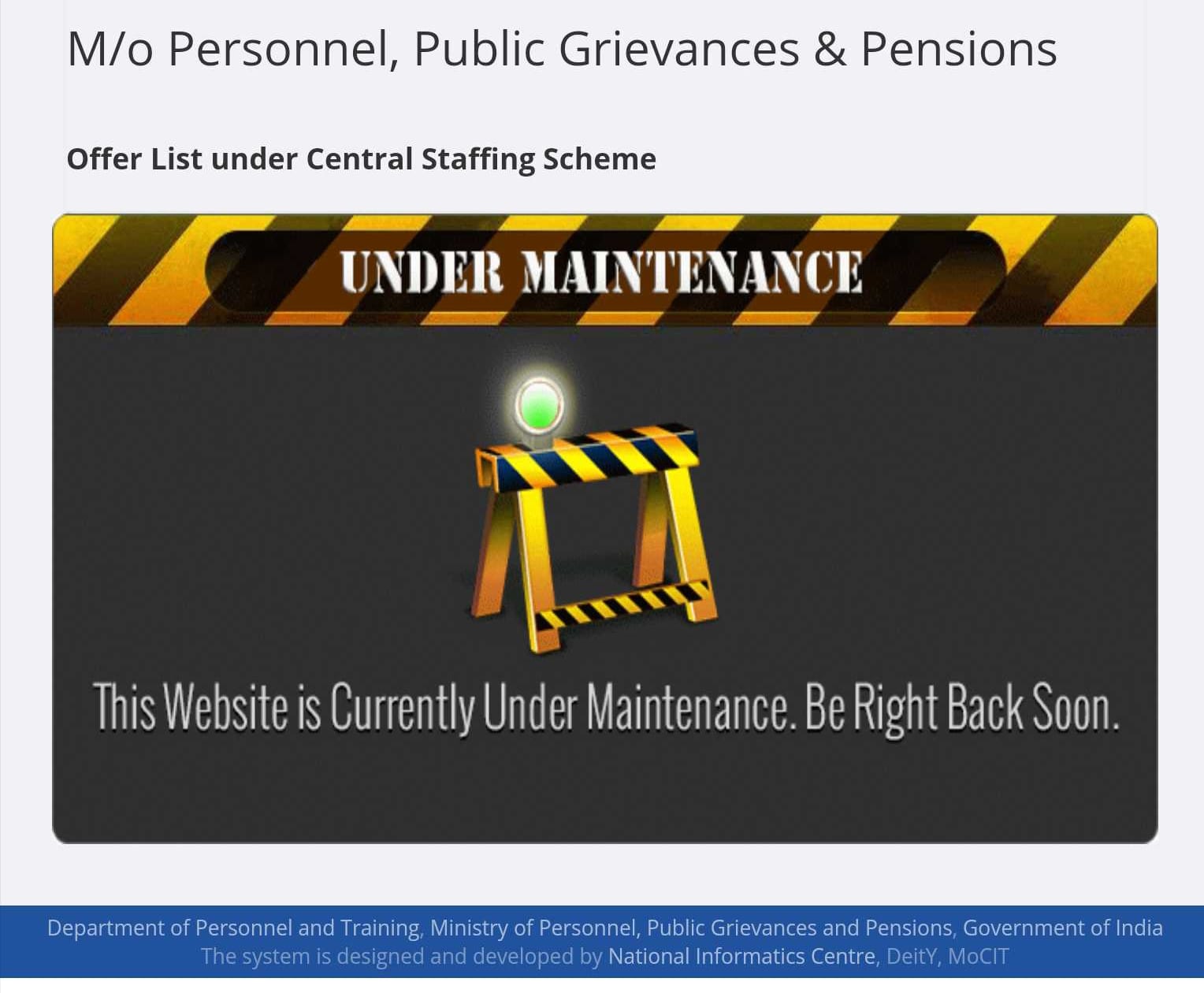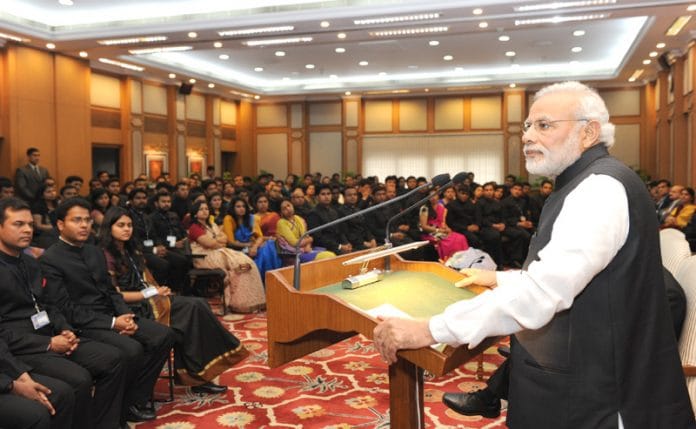States could ‘offer’ civil servants to central ministries, who could then select appropriate candidates for vacancies, making the system transparent.
New Delhi: A public list of civil servants curated by the central government — from which central ministries could pick officers from the states — was quietly made ‘restricted’ on the website of the Department of Personnel and Training (DoPT) at least five months ago.
The unexplained move has sparked concern among civil servants that the Modi government may not want to be transparent while selecting senior officers to work in the central government. This move comes on the back of the controversial June decision of the government to hire 10 specialists from the private sector as joint secretaries through lateral entry.
Some officers, who spoke to ThePrint on condition of anonymity, said they feared the move could make the process of selecting officers opaque. However, some others said they believed that this could be a well-meaning move to avoid baseless smear campaigns by officers competing for the same position.
The controversy, however, deepened on Wednesday as the restricted list was also taken off and replaced by a web page which said the section was under maintenance and would be back soon. The DoPT spokesperson and official responsible for the web page did not respond to queries sent by ThePrint. This report will be updated when they do.

Also read: Protect IAS officers from ‘fake complaints’, top bureaucrat urges Modi government
What is the ‘offer list’?
Referred to as the ‘offer list’ in official parlance, the list was a publicly available go-to database. Through this, top central government officers could keep track of the number of officers that states had offered to the Centre through the Central Staffing Scheme.
Two different lists are maintained — one for positions of deputy secretary and director, and the other for joint secretary.
More importantly, the ministries had a readily available list of officers from which they could assess talent for vacancies. A joint secretary-rank IAS officer told ThePrint on the condition of anonymity that if there was a vacancy in a certain ministry, the higher-ups could go through the list, compare officers’ qualifications and experience, and shortlist the most suitable candidates for the job.
“The offer list was obviously a very important document through which an officer knew if he was on offer, and any ministry could say it wanted a specific officer,” said S.K. Sarkar, a former DoPT secretary.
“The advantage is that officers know their names are there on the list, the ministries know of the competent persons, so there is a measure of transparency,” he said.
The DoPT’s own website says: “The current system of placement in the central government at the level of joint secretary involves several stages. In the first stage, each year the establishment officer invites nominations of officers from state governments and other cadre-controlling authorities. Once the nominations are received and scrutinised for eligibility to be considered for a placement under the Central Staffing Scheme (i.e. cooling off completed, officer empanelled, not otherwise debarred, etc.), an ‘offer list’ for the year is prepared.”
‘Increasingly opaque’
The recent trend of the Modi government appointing officers from services other than the IAS, or of a decrease in IAS officers applying for central deputation in the government, could easily be gauged through the ‘offer list’.
Also read: The IAS has thinned at the top of the bureaucracy under the Modi government
“One could study the trends of appointment in the central government through the offer list,” the joint secretary-rank IAS officer quoted above said. “You could tell if the government is selecting more IAS officers or officers from other services — it was all in the public domain. But suddenly, they just removed it without any explanation whatsoever.”
Officers who wanted to apply could see the number of officers already on offer and the corresponding vacancies in ministries, and take an informed decision over their applications, explained another senior civil servant.
A third government official who did not wish to be named added: “The offer list was there just to make the system transparent. On one hand, they have come up with lateral entry, and on the other, removed this list, which ensured there was transparency and fairness.
“The system is becoming increasingly opaque.”
‘Not a big deal’
Another joint secretary-rank IAS officer, however, said the list may have been removed from public domain to avoid smear campaigns against officers on the offer list.
“Sometimes, as soon as an officer’s name would appear on the list, a plethora of anonymous complaints, smear campaigns and a lot of sabotaging began,” this officer said.
“This happens before any major appointment in government, so the list was prone to misuse. Anyway, it is not something that the public was interested in, so I don’t think it is a big deal,” he said.







The present move of the Modi Government is seem to be towards providing a practical transparent administration. It’s good trend. While selecting personal either from effective persons other than civil service and also a particular group of civil servants in the zone of consideration their merits must also be adjudged on a essay they have written by own pen as to why they want to serve on the nation . It would be the best process to the vision they share to assist the rulers. As because after getting into the job many genius become easy going and leave their dynamism for one and other reasons run the day to day work as it’s. As such at this important juncture of national requirements a test is quite essential for better future.
The consideration zone means officers as well as outsiders both consist of the experience and between a particular span of age( say within the age group of 35_45 or more in exception).
Because Fenku Pm wants only his pet dog beuros who vibrate their Tails as per his wish main qualification is they should not have their own Spine they should PUPPETS only on line of Gujarat who can arrange Melas& functions in Praise of Fenku.
Another set of bundles of hatred, loads of lies laced with biased report, doesn’t make any sense about IAS official transfers, which are done with greater scrutiny and supervision, to enable effective administration.